Being cancelled has worked out fantastically for me
Ed Cumming interviews me
The following is an interview Ed Cumming did of me regarding my cancelation:
His defence of colonialism turned him into a hate figure among the Left. Now he is taking on the ‘nonsensical’ campaign for reparations
“There was a time when I wanted people to like me, and I would not want to risk losing people’s approval,” says Nigel Biggar. “But I figured out that people who dislike me for bad reasons are people whose approval is not worth having. There are plenty of other people whose judgment I value who support me.
“Old age brings a dangerous combination of two things. You finally figure out what you think, and you cease to care what other people think, so you’re more inclined to say what you think.”
Britain’s most controversial historians. For the best part of a decade he has been waging an often lonely battle for a reappraisal of colonialism, arguing that the British Empire was not as evil as contemporary historians have tended to portray it. His views have provoked opprobrium from other academics, hostile reviews and an aborted publishing deal. They have also brought him international book sales and an unusual level of fame for a Christian ethicist.
As the icing on the cake, last December, Kemi Badenoch ennobled him; it is Lord Biggar of Castle Douglas who greets me in his new digs at the House of Lords. Five months after his appointment, he is still finding his way around, but settling comfortably onto his new perch. “Apart from the gents outside the chamber being in poor condition, I’m really enjoying it,” he says. A neat, trim 70, in a dark suit and wire-framed glasses, Biggar is a friendly, if slightly guarded, host. He gives the impression he has endured the barrage of online criticism because he believes he is correct, rather than because he enjoys the scrap.
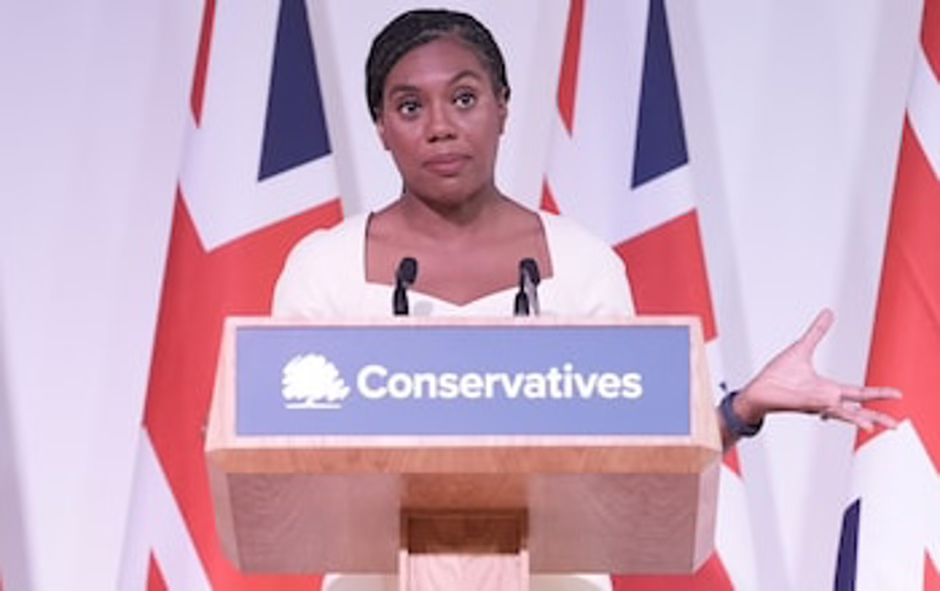
As he publishes a new book, Reparations, in which he debunks the case for old imperial powers to pay damages to their former colonies, Biggar says he is happy with how things have turned out.
“Sometimes I have felt unnerved, sometimes I felt depressed, but the truth is it has all worked out fantastically,” he says. “Kemi Badenoch appointed me because she was aware of what I’ve been doing on the anti-decolonising front, and because I’ve supported her on all three of the culture-war issues: gender, race and decolonisation. This issue about colonialism and reparations has really brought my career to its proper focus. If only my enemies knew what good they’d done me.”
The crusade started in 2017, when Biggar, then professor of moral and pastoral theology at Oxford, started a five-year project, Ethics and Empire, with the aim of scrutinising colonial history and presenting a more balanced view of empire in general, not only the British example. For the project and related essays, he was widely denounced. Fellow academics, including close Oxford colleagues, signed petitions against him. Dr Priyamvada Gopal, an Indian-born professor of postcolonial studies at Cambridge, was one of his most eminent critics.
“Shameful,” she wrote on Twitter, describing a collection of Biggar’s essays. “Apart from any politics attached to it, dumbing down of actual historical work to supremacist shite. Racist & lightweight, well-done, Oxford.”
Although his university privately supported his project, Biggar endured months of worsening criticism. “When I got into trouble, my name was in the press every day for two or three weeks in December 2017. Although one or two emailed me in support, the vast majority of my colleagues and friends said nothing. Academics may be independent minded when it comes to their niche, but when it comes to political matters they don’t want trouble.” Rather than be dissuaded, Biggar doubled down.
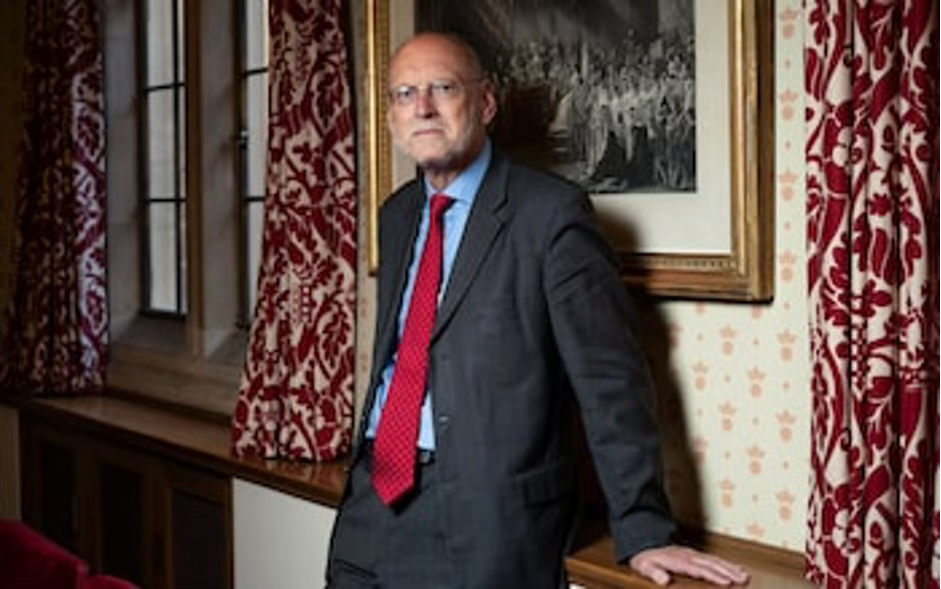
“Good, old friends told me to drop the whole thing because it was too toxic, and I persevered,” he says. “Partly because other people supported me to do it, but mainly because I intuited this was really important for Britain. I feel even more certain about that now. Over time I have become even more convinced that the views I have are more or less the right ones, and it matters.”
In the wake of the initial row, Bloomsbury commissioned Biggar to write a book about colonialism, drawing on his research at Oxford. But by January 2021, in the wake of the Black Lives Matter protests, they had cold feet about the idea. They wrote to Biggar to say that “public feeling on the subject does not currently support the publication of the book,” delaying the project indefinitely and offering to pay him out of his advance.
“I was for some days quite depressed,” he says. “I thought ‘Have we really come to a place in Britain where work on an important topic can’t get published because the senior management of a publisher yields to junior staff who can’t deal with offensive material?’”
The poster boy for free speech
HarperCollins stepped in and published Colonialism: A Reckoning in November 2021. A bestseller, it argued that slavery was not the same as colonialism, that Britain was not exceptional in its actions, and that, while there were undoubtedly evil excesses, the agents of empire were also humane and principled, and brought order as well as death and destruction. Biggar became a poster boy for free-speech enthusiasts, and was made chair of Toby Young’s Free Speech Union.
With the success of his book, his arguments about colonialism moved from the fringes of the discussion towards the mainstream. In the paperback edition, he wrote a response to 10 of his most hostile critics.
“Having gone through that, I’m pretty confident I got it more or less right,” Biggar says. “My sense is that the tectonic plates are shifting a bit. In the end my book sold somewhere between 65,000 and 70,000 copies.”
It is a figure that must have the Bloomsbury accountants waking up in cold sweats of regret, but also reflects Biggar’s journey out of the fringes. He expects Reparations to get a less antagonistic reaction than Colonialism did. “ I suspect the pushback will be less hostile than the Colonialism book. There are signs of resistance to the anti-colonial narrative gathering.
“[The change] has been partly because some people, not just me, stood up and said ‘This is nonsense’,” he says. “My perception is that there are a minority of aggressive ideologues who are absolutely certain about colonialism being evil. Then there are a much larger majority of people who don’t know much about colonial history, but know that if you stand up for colonialism you’ll be plastered with accusations of being a racist and a white supremacist.
“But when some individuals feel able to stand up and say, ‘This is nonsense’, more in the intimidated majority realise they are not alone and the dissidence gathers.”
His experience of academia chimes with a broader political observation that, in recent years, many have felt reluctant to speak out on sensitive topics. The grooming gangs are a case in point.
“The refusal to attend to the ethnic dimension of this problem was a fear of being accused of being racist,” he says. “I think the security forces have become skittish about anything that might alienate Muslim communities further. But denying there are cultural reasons for the grooming gangs or a problem with cousin marriage, or Pakistani-Muslim communities in Bradford [isn’t helpful].
On the subject of his new book, he says the case is clear. “It’s also partly because the anti-colonialist position, the case for reparations, is nonsense, once you look at it carefully,” he says. “The emperor has no clothes.”
Subtitled “Slavery and the Tyranny of Imaginary Guilt”, Reparations argues that the case for reparations is murky and impracticable. While Britain had a loathsome slave trade, he argues, slavery is as old as civilisation and existed all over the world, including within Africa. He also argues that Britain’s profits from slavery are impossible to accurately quantify and Britain did more than any other nation to bring about abolition, which also came at great economic cost.
The issue of reparations has gained political salience since Labour won the election, as several prominent Labour figures have expressed their support for it. Biggar’s political purpose is to avoid a false sense of guilt impeding progress in other areas, or being used by political opponents.
“Clive Lewis MP is at the centre of a parliamentary campaign to promote it and David Lammy has shown sympathy for it,” Biggar says. “The issue has gained more political significance. Both the reparations book and the colonialism book are trying to prevent the UK from being manipulated through a false sense of guilt into paying reparations.
“We’re not going to do it because we can’t afford it, but I think this Labour Government would probably agree to something in principle if we could afford it.”
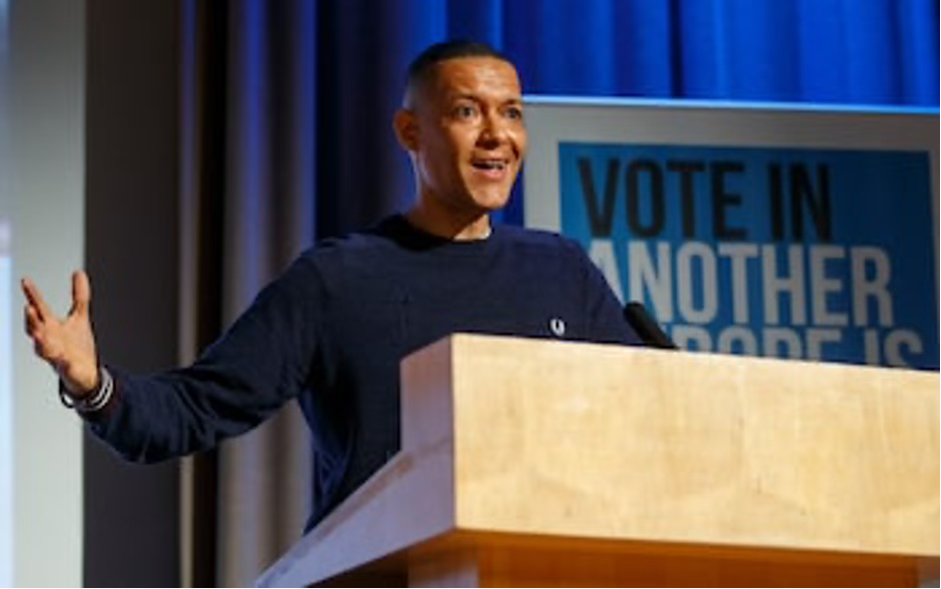
There have been debates around reparations since the abolition movement in the 19th century. And the idea gained momentum in the late 20th century through groups like the African Reparation Movement, founded in 1993 by Bernie Grant MP. In 2014, the Caricom group of Caribbean nations approved a 10-point plan for slavery reparations. Universities and other institutions have launched investigations into their own historic links with slavery.
The clamour for reparations increased after the Windrush scandal in 2017, but was supercharged by the Black Lives Matter protests and the murder of George Floyd in 2020.
In January 2023, the Church of England committed £100m to a fund intended to “address past wrongs” of the slave trade. One estimate has calculated Britain’s colonial debt at an outlandish $24tn (£17tn), a figure that is more than six times current GDP.
“With reparations, people talk as if we could go back 200 years ago, unravel history and return it to where it was,” Biggar says. “The thing about guilt is that there’s no end to being exploited. How on earth can we make up for the slaves who were worked to death?”
Biggar argues that Britain’s enemies see our self-flagellation over our past as a weakness. “I think the surrender of the Chagos islands is partly due to a misplaced sense of colonial guilt,” he says. “There’s no doubt that China has used colonial guilt as a way of brushing off criticism of the Uighur people.
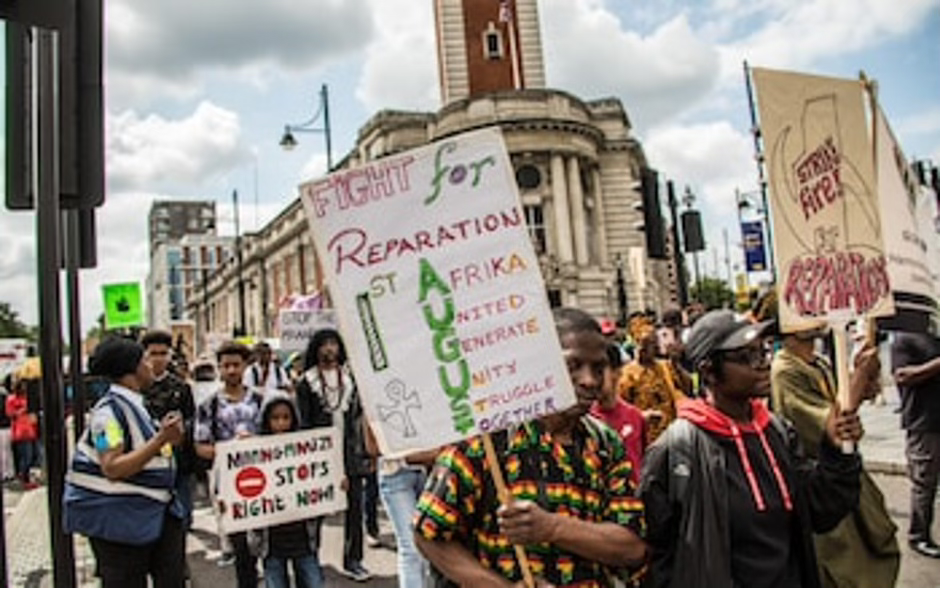
“And I’ve heard from Indians and Africans viewing our breast-beating in this country and saying ‘Why are you doing that?’ A friend who toured Africa reported that their reading of colonial history was far more nuanced than ours. Yes it did bad things, it also did good things. Our elites tend to have gone overboard with the negative. The grandchildren of the real subjects of empire look at us and think ‘Why are you beating yourself up in this way?’”
Biggar’s metamorphosis into one of the country’s most provocative popular historians is all the more surprising when you think that until his 60s the most controversial thing he did was become a Christian. Born in 1955, he grew up in Castle Douglas, Kirkcudbrightshire, near the western edge of the Scottish border with England, “beautiful agricultural country”, from where he has taken his title.
His father worked for a family firm that produced cattle feed and fertiliser, his mother was a schoolteacher during the war, but was “basically a mother.” He had an older brother, Tony, who was killed in a motorcycle accident in Nairobi when he was 33 and Biggar was 27.
“My mother had a daughter who died within six months,” he says. “My poor parents suffered twice.” He wells up when he mentions Tony. “I feel privileged to have lived long enough to get to this point.”
After prep school in Ayr, Biggar was sent to boarding school at Monkton Combe near Bath, where his Christianity became more pronounced.
“I had begun to catch religion at a very young age,” he recalls. “Neither of my parents were religious. My mother was a lapsed Methodist, my father was a non-church-going Presbyterian. Telling my parents I was Christian was the first time I had the courage to stand out. My parents were benignly bewildered. My father put his hand on my shoulder and said, ‘It’s OK, it’s just a phase.’”
The first in his family to go to university, he read history at Worcester College, Oxford before moving to Chicago for his masters in religious studies. Being an undergraduate between 1973 and 1976 was formative; there has always been a political aspect to his faith.
“The 1970s was a national crisis in a way we’re not facing right now,” he says. “Bloodshed in Northern Ireland was at its worst, the unions were holding the country hostage. I had to prepare for my exams in November 1973 having to read by candlelight, and drink tea with no sugar because the docks were shut down. As a budding Christian, I said to myself ‘What does 2,000 years of Christian tradition have to say to this?’”
After a masters in Christian Studies in Vancouver in 1980, where he met his wife Virginia, 10 years his senior, he returned to England and was ordained as a priest in 1991. Although he was never a parish priest, he was chaplain of Oriel College, Oxford. Chairs in theology in Leeds and Trinity College Dublin followed before he returned to Oxford in 2007, where he was Regius professor until he retired in 2022. In 2013 he published the book In Defence of War, arguing for “just” wars, including Afghanistan and Iraq.
His serious interest in colonial history started around the time of the Scottish independence referendum in 2014. “As an Anglo Scot, although I’m a committed unionist, I felt obliged to look at nationalist arguments in case they might be right,” he says. “One of the arguments was that Britain equals Empire equals evil, therefore Scotland needs to purify itself by seceding.
“I knew that wasn’t tenable. But the point was that colonial history was being used for destructive political purposes. It’s the same with British slavery: it’s being used by foreign parties to get leverage or for financial reasons.”
He is not a lifelong Tory. He voted for Tony Blair for 10 years. But, understandably given that she elevated him to the Lords, Biggar remains supportive of Kemi Badenoch’s leadership of the Conservative Party. Part of his aim in fighting the case for reparations is to improve confidence in British institutions and stave off political extremism.
“This indiscriminate trashing of Britain’s past is politically dangerous,” he says. “I think it’s melodramatic to say we’re on the road to civil war, but I don’t think we should discount it entirely. We have been there before. But what I fear is that we have a Labour Government in the process of disillusioning the voters again.
“Nigel Farage is exploiting the justified disillusionment by making extravagant promises he’s not going to be able to keep. If we were to elect a Farage government, I think political disillusion would plummet even more deeply. Then, God help us, we might have a Corbyn government.”
Biggar’s critics have variously accused him of white-washing Empire, omitting or under-engaging with scholarship that disagrees with him while cherry-picking data and anecdotes that support him. Reviewing Colonialism in the Guardian, Kenan Malik found that, “in seeking to challenge what he regards as cartoonish views of imperial history, Biggar has produced something equally cartoonish: a politicised history that ill serves his aim of defending ‘Western values’.”
Did he get anything wrong? “I think I’ve given an account that includes all the data, the bad stuff and good stuff. It’s possible I underestimated the quantity of racial prejudice among British settlers in East Africa or among British planters in India.
“I think my basic defence would be, ‘Maybe I did, but this book was a response to an environment where the negative features were being overplayed.’”
When he is not fighting his corner, Biggar likes to go on Second World War-themed treks. In 2015 and 2017, he followed the route through Crete taken by Patrick Leigh Fermor and Stanley Moss in 1944, when they smuggled a captured German officer back through enemy lines.
On another trip, Biggar followed the writer Eric Newby’s escape from captivity in Italy. On that trip, Biggar found himself on the same hill where his father had been a stretcher bearer in the Second World War. Most recently, last year he followed the route of Frank Thompson, the younger brother of the historian EP Thompson, who parachuted into Serbia in 1944 to try to raise a revolt against the Bulgarian government.
“It was a disaster,” Biggar says. “He was run to ground and executed, but we followed his route across the mountains and ended up in the spot where he was shot. My friends aren’t so keen on the history, but I need a story.”
If they ever give out decorations for fighting in the culture wars, Biggar will be laden with medals.
Reparations: Slavery and the Tyranny of Imaginary Guilt by Nigel Biggar (Forum Press, £20) is published on September 25
This article first appeared in the Telegraph on 14 September 2025.


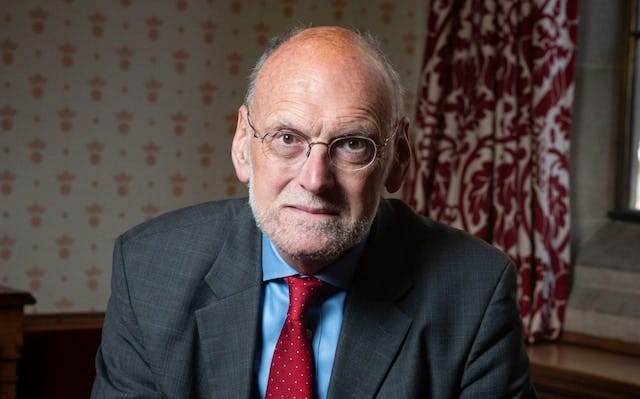
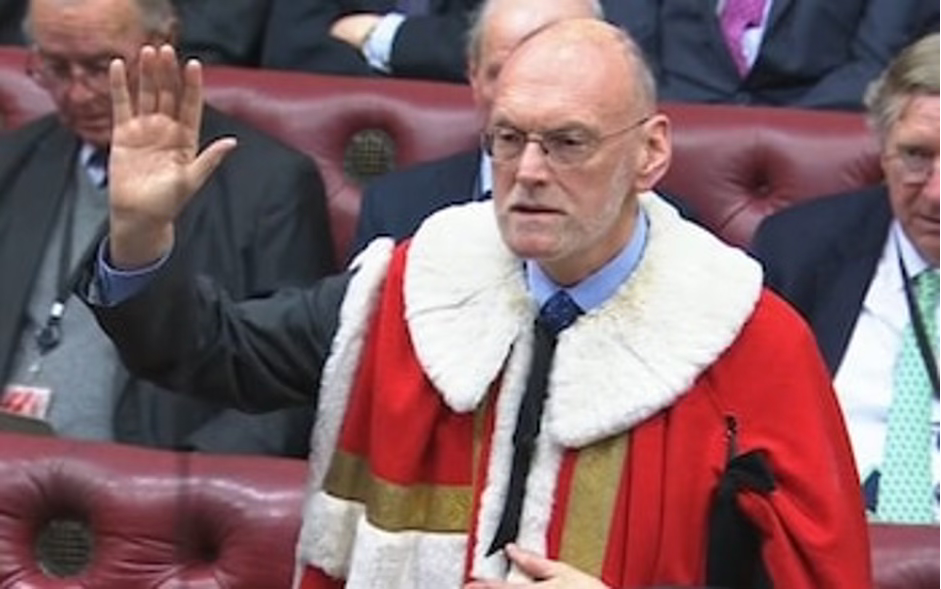
The finger pointed at colonialism always has 4 pointing back to the cultures into which the colonials stepped. Few examine these cultures with the tenacity and ill will with which the colonising culture is pursued.
I am a Canadian of Mr. Biggar’s age and I was brought up with the pioneer experience story, that of ploughing the land, building the log cabin, creating a new life in a sometimes cold and inhospitable environment. I recommend Suzanna Moodie’s autobiographical account of this experience, “Roughing It In the Bush.” The settlers arrived with little and, given a plot of land, had to feed and support themselves. They were helped, at times, by the indigenous people. It’s so sad for me to see this story obliterated from our history.